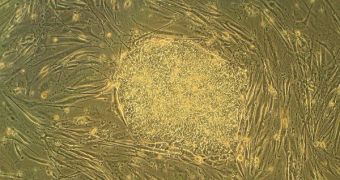In a groundbreaking new work, scientists from the University of Wisconsin-Madison managed to create several types of white blood cells from cultures of embryonic and adult stem cells. The experts first had to convert them into progenitors of white and immune cells, but the astounding success they had with their work could soon allow for embryonic stem cells to be used in hospitals as a very powerful, multipurpose medical tool.
The cells that were obtained in the new research could potentially be used as models for analyzing the effects that certain diseases and pathogens have on them. The HIV virus, for example, acts by crippling the immune system, so studying it may be a lot easier if white blood cells become readily available. According to the team, they managed to obtain the immune system cells from both embryonic stem cells, and from reprogrammed adult stem cells, which were beforehand converted to their original, undifferentiated state.
Igor Slukvin, the leader of the new study, and an assistant professor at the UWM Department of Pathology and Laboratory Medicine, believes that, though the technology is still years away from mass practical applications, it could still be used right away for conducting assessments of new drugs. “Toxicity to the blood-forming system is a key limit on drug development, so these cells could be used for safety testing in any drug development,” the scientist says.
“While we now can make almost all types of blood cells from embryonic and adult pluripotent stem cells, the next major challenge is to produce blood stem cells (called hematopoetic stem cells) that might be used in a bone marrow transplant. We can take cells from patients with a disease of the blood system and explore the cause and treatment of that specific disease. We can generate blood cells which are normal or abnormal, and study the mechanisms and treatments of blood cancers,” he concludes.

 14 DAY TRIAL //
14 DAY TRIAL //